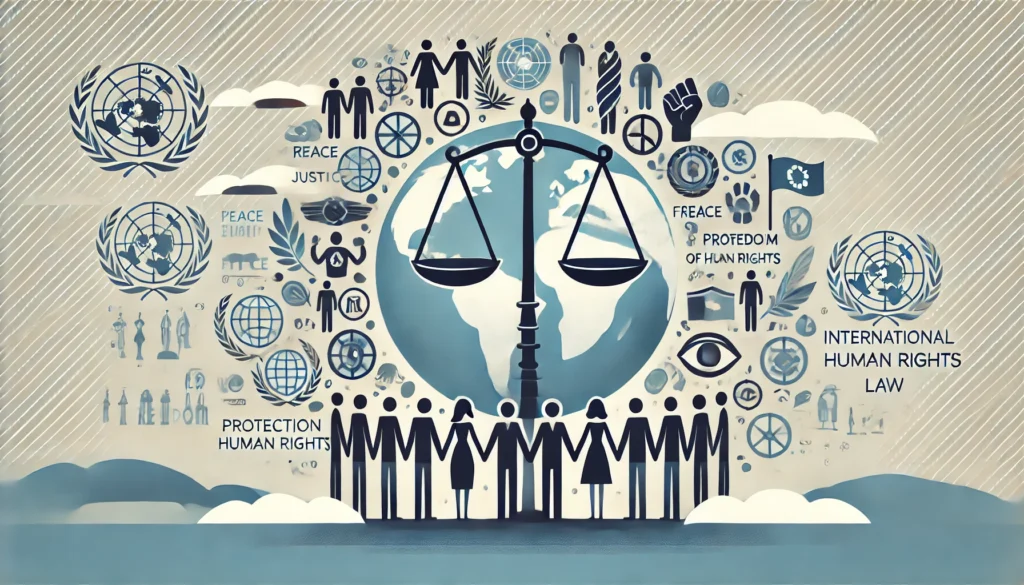Published On: September 25th 2025
Authored By: Shreya Lakshmi Bhat K R
SDM Law College, Mangalore
Case Title: Tata Consultancy Services v. State of Andhra Pradesh
Citation: Supreme Court of India
Bench: Justice S. b. Sinha
Date of Judgement: 5 November 2004
Key Provisions:
The case involved the interpretation of several constitutional and statutory provisions related to the definition of “goods” and the nature of transactions that can be taxed by the State.
1. Article 366(12) of the Constitution of India
This Article defines ‘goods’ to include all materials, commodities, and articles. It does not restrict the definition to tangible items, making it a broad and inclusive term. This constitutional definition forms the foundation for determining what constitutes ‘goods’ for the purpose of taxation under State laws.
2. Article 366(29A) of the Constitution of India
Inserted by the Forty-Sixth Amendment, this Article expanded the definition of a ‘tax on the sale or purchase of goods’ to include six specific types of transactions. Relevant to this case is the clause that includes the transfer of the right to use any goods for any purpose (whether or not for a specified period) as a “deemed sale”. This provision gives constitutional validity to sales tax on transactions involving use-right without actual transfer of ownership.
3. Section 2(1)(h) of the Andhra Pradesh General Sales Tax Act, 1957
This provision defines “goods” broadly to include all kinds of movable property, including intangible items that can be transmitted, transferred, or sorted.
4. Section 2(1)(n) and Explanation IV of the APGST Act
Section 2(1)(n) defines ‘sale’ to include the transfer of the right to use any goods.
Explanation IV specifically deems such a transfer, even without actual delivery or ownership transfer, to be a ‘sale’ for taxation purpose.
5. Section 5 of the APGST Act
This is the charging section which authorizes the State to impose sales tax on taxable goods sold within the State.
6. Section 5-E of the APGST Act
Introduced to specifically provided for tax on the transfer of the right to use goods. It was intended to align the APGST Act with the expanded definition of ‘sale’ under Article 366(29A).
Brief Facts:
Tata Consultancy Services (TCS), a premier Indian information technology and consultancy company, was engaged in providing both software development services and software products to various clients across the county. Its operations included two distinct categories of software: first, customized or tailor made software, developed specifically for individual clients based on their particular needs; and second, standard or branded software, commonly referred to as “canned software” which was ready-made, produced in large scale, and sold to multiple clients without significant alteration.
This canned software was typically available in the form of compact discs (CDs) or floppy disks, and included well known products such as Oracle, Lotus, Masterkey, N-Export, and Unigraphics. These products were pre-packaged and not designed for any one client in particular. TCS would purchase these software products under license from their patent companies or original developers and would then distribute or resell them to customers in Andhra Pradesh and elsewhere.
During the assessment years 1991-92 to 1993-94, the commercial Tax Officer of Andhra Pradesh conducted assessments of TCS’s business and concluded that the sale of these branded software packages amounted to a “sale of goods” under the provisions of Andhra Pradesh General Sales Tax Act, 1957. Accordingly, sales tax was levied on TCS for these transactions. The assessment was made on the basis that when software is sold in a tangible medium, such as a CD or floppy, it possesses all the characteristics of “goods” as defined under the Act.
TCS, however, took the position that software is not a good but rather a form of intellectual property. It argued that when it sold software to its customers, it did not transfer ownership of the software itself but merely granted license to use it. According to the company, such a transaction should not be classified as a “sale” and therefore should not be subject to sales tax. TCS also contented that software was intangible, even though it might be stored or delivered through tangible mediums, the essential nature of the product remained intangible and non-taxable under the existing tax framework.
The matter was first contested before the Appellate Deputy Commissioner, who upheld the classification of software as goods but remitted the case back for recalculating the tax. TCS then approached the Sales Tax Appellate Tribunal, which dismissed the appeal and confirmed the taxability of the transactions. Eventually, the case reached the Andhra Pradesh High Court, which also ruled against TCS. Dissatisfied with the outcome, TCS approached the Supreme Court of India under Article 136 of the Constitution, challenging the classification of branded software as goods and the applicability of sales tax on such transactions.
Issues Involved:
- Whether pre-packaged, branded software qualifies as “goods” under the Constitution and the Andhra Pradesh general Sales Tax Act.
- Whether the transfer of the right to use such software amounts to a “sale” under the law.
- Whether the State Government had the constitutional power to impose sales tax on such software transactions.
Arguments of the Parties:
Appellant – Tata Consultancy Services (TCS)
TCS, represented by eminent counsel including Mr. Soli Sorabjee, submitted that software, even when delivered on a CD or floppy remains fundamentally intangible intellectual property. Their contention was that what the customer receives is not ownership of the software, but merely a license to use the program, and therefore it cannot be classified as “goods” under the Andhra Pradesh General Sales Tax Act[1]. They emphasized that the physical medium used for delivery has negligible value compared to the intellectual content it carries. The essential transaction is not the sale of a tangible article, but the right to use a set of instructions embedded in a machine- readable medium, which remains intangible even when fixed onto a disk[2].
TCS argued that statutory definitions should be interpreted in “light of the essence of the contract” rather than its own form. Drawing on older Supreme Court decisions like Psi Data Systems Ltd. V. collector of Central Excise, where disks supplied with computers were excluded from excise valuation, they contended that software licensing is akin to service provision, not sale of goods. They urged that merely because the software could be installed via disks does not transform it into tangible property for tax purposes, especially when resale or duplication is typically restricted by license agreements.
Furthermore, TCS challenged the constitutional validity of applying Article 366(29A) to software licensing, arguing that deemed sale provisions were intended for physical goods whose use-rights could be separated from ownership, not for intellectual creations. They maintained applying the definition of “goods” to software would stretch both constitutional and statutory text beyond its intended scope, effectively allowing states to tax intellectual property without legislative sanction.
Respondent – State of Andhra Pradesh
The State, through its council (Mr. Dwivedi), argued that software, once stored in a medium, adopts the essential characteristics of goods, it can be transferred, stored, possessed, delivered, and sold[3]. They asserted that Section 2(1)(h) and Section 2(1)(n) Explanation IV of the APGST Act were deliberately drafted to include intangible goods capable of being transferred in a commercial setting, thereby capturing licensed software as taxable. Legislative competence was claimed under Entry 54 of List II, which empowers states to tax “taxes on sale or purchase of goods”, further supported by the expanded constitutional framework under Article 366(29A).
The State referred to established Supreme Court precedents, State of AP v. NTPC Ltd. (electricity), H. Anraj v. Tamil Nadu (lottery ticket rights), and Associated Cement Companies Ltd. V. Commissioner of Customs (technical drawings stored on disks); all of which treated intangible commodities as goods due to their deliverable and storable nature[4]. They argued that there is no principled distinction between software packages and other intangible goods embedded in physical media and widely traded, such as books, music CDs, or copyright material.
The revenue side dismissed the essence of contract argument, stating that statutory definitions did not turn on parties’ intention but on objective attributes of the transaction and item transferred. They noted that the courts in other jurisdictions, including decisions from U.S. and U.K. courts such as Wal-Mart Stores, Inc. v. City of Mobile, have upheld that software stored on physical media can be taxed under goods or tangible property laws[5]. The State called for a pragmatic interpretation reflecting commercial realities, not narrow doctrinal distinctions.
Judgment:
The Supreme Court, held that branded canned software sold on physical media qualifies as “goods” within the meaning of Article 366(12) of the Constitution and Section 2(1)(h) of the APGST Act. The Court emphasized that when software is stored and sold through a tangible medium like a CD or floppy disk, it satisfies the legal character of goods, such as capable of storage, delivery, possession, and transfer. The fact that the software itself originated as an intangible creation did not exclude it from the statutory definition of “goods” once it was embodied in a tangible form.
Further, the Court also ruled that giving a customer the right to use such software amounts to a deemed sale, validly taxable under the APGST Act. It upheld the State’s power to levy this tax under Entry 54 of List II, supported by Article 366(29A)[6].
Ratio Decidendi:
Standard software sold on a physical medium is considered “goods” if it can be used, transferred, or sold. Giving someone the right to use such software counts as a sale and can be taxed by the State.
Obiter Dicta:
The Court mentioned that custom made software might not be treated as “goods” because its made for a specific client and not sold in the open market. This was just an observation and not part of the main decision, so it’s not legally binding.
Final Decision:
The Supreme Court dismissed the appeal filed by TCS and upheld the decision of the Andhra Pradesh tax authorities. It confirmed that branded software sold on physical media is taxable as “goods”, and the State has constitutional authority to levy sales tax on such transactions as a deemed sale[7].
Impact of the Case:
The Tata Consultancy Services judgement had a far reaching impact on Indian tax and technology law. By declaring that software can be “goods” when sold on tangible media, the Supreme Court clarified the legal position for state sales tax departments and businesses alike. It helped eliminate ambiguity over whether software transactions, especially licensed and mass produced versions, were service based or goods based. The ruling paved the way for clearer taxation policy on digital products and influenced future discussions on the taxation of intangible assets, especially under the later Goods and Service Tax (GST) regime. For businesses, it prompted contractual and licensing changes, ensuring they accounted for tax liability on software transactions. The case also served as a foundation for how intellectual property is commercialized and taxed in India, influencing both digital trade and cross-border licensing frameworks.
References
[1] TCS’s primary submission as summarized in Psi Data Systems Ltd. V. Collector of central Excise, (1997)2 SCC78, cited in Casemine commentary on TCS v. AP.
[2] Appellant’s argument about license v. ownership, Indian Kanoon summary (para 27 and para 29).
[3] Respondent’s submission referencing statutory definitions in Casemine & ITATOnline summaries.
[4] Precedents including NTPC, Anraj, Associated Cement Companies Ltd., cited in Casemine commentary.
[5] International jurisprudence such as Wal-Mart Stores, Inc. v. City of Mobile, cited as comparative law in Casemine Summary.
[6] Tata Consultancy Services v. State of AP,(2005) 1 SCC 308, para 26.
[7] Tata Consultancy Services v. State of AP,(2005) 1 SCC 308, para 33.




